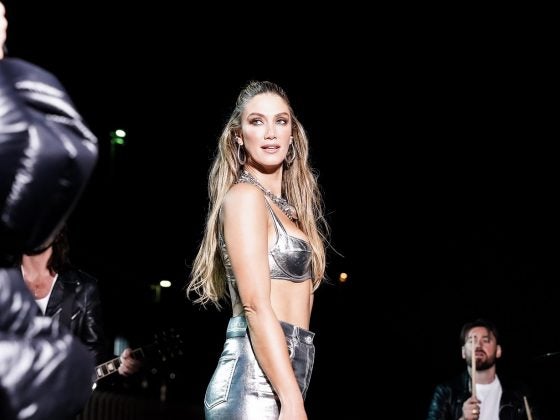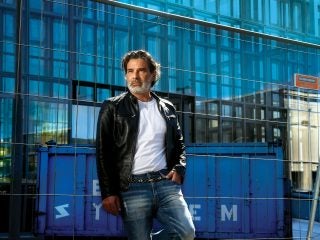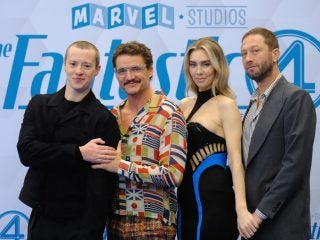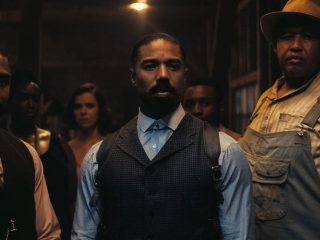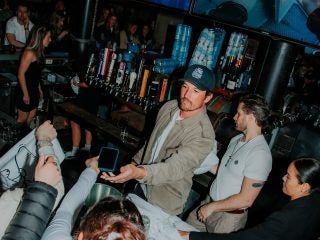Nathalie Kelley, a Peruvian-Australian actress, has captivated audiences with her range of roles over the past twenty years, and now she’s using her voice to promote ancient technologies that could transform the environment for the better.
Many might recognize her for her breakout role as Neela in the 2006 film The Fast and the Furious: Tokyo Drift.
Her career again gained momentum in 2010 when she starred as the love interest in the music video for Bruno Mars’ hit song “Just the Way You Are”. The following year, she secured a major recurring role in the second season of the ABC crime drama Body of Proof, playing Dani Alvarez.
In 2014, Kelley was cast in a regular role in the Lifetime series Unreal, a show that offered a satirical look at reality television. From 2016 to 2017, Kelley played Sybil in the final season of The Vampire Diaries. Her role as Cristal in the first season of Dynasty reboot from 2017 to 2018 showcased her talent in a prime-time soap opera.
In 2020, she took on the lead role of Noa Hamilton in the ABC series The Baker and the Beauty, bringing a charismatic and engaging presence to the romantic dramedy. It hit number one on Netflix in the Americas the week of its release.

She has a social media following that exceeds 1.5 million, and recently spoke in Toronto, Canada, at the Collision tech mega-conference, on the topic of planet stewardship.
Firstly, what creative projects are you working on?
I’m working on a science fiction story about a world in which modern technology is hurting us, and the world has to rely on ancestral knowledge and Indigenous skillsets to survive.
And that story is not some kind of dystopian future. This post-apocalyptic world is a much better world than living today. Climate change has been averted. Relationships have been restored between humans and other living beings. What matters? Clean water, food. There are corporations ordering people to cut down trees or put mercury in the water to get out gold to make iPhones. No! People are concerned with what matters again. And these technologies bring us closer to nature instead of taking them away from from nature.
When we imagine science fiction, we imagine robots and machines. This is the exact opposite. This is a future that looks very much like an ancient future.
What did you speak about at Collision?
I spoke on behalf of technologies that have been overlooked by Western history, culture and science. Technologies have existed on this continent and around the world, for over 30,000 years, that involve ways of growing food, and clean water, constructing communities, that are primarily borne out of intimacy with all living beings. We should desperately consider alternatives to high tech, and what we are calling this local traditional ecological knowledge, and that “Lo-TEK” could serve as an antidote to the destruction that high technology has on our planet.
What’s an example of Lo-TEK?
One of the greatest invention humans ever made, is a technology called Terra Preta, a Portuguese term for Black Earth. It is the fertile soil on which the Amazon rainforest was growing. We think the Amazon rainforest is a pristine bit, untouched by man, that humans just happen to stumble upon? But there were parts built by actual engineers, created by people using technology, over thousands of years, to create the world’s most sophisticated, beautiful carbon capture. It also is home to the most biodiversity on the planet.
It is a supermarket of pharmacy with 96% of all medicines today, coming from tropical forests. So what is cultivated and created there has never been reproduced.
If you look at things like Machu Picchu, the cities that my ancestors the Incas built, we were incredibly sophisticated, engineering to move water long distances to irrigate lands, to build topsoil with the agricultural techniques and feed tens of millions of people, without a drop of chemical fertilizer or glyphosate or any of the things that industrial agriculture tells us we need now.
And we have technology to clean water. Through bio-remediation, using plants and mycoremediation, through the use of fungi, and use it to clean oil spills, even nuclear waste. These are all ancestral skills, ancestral knowledge, erased or trying to be erased, and are being ignored. Why? Because they belong to the people, they belong to the communities out of which they were born. And by their nature cannot be co-opted by corporations and monetized.

Indigenous technologies were born out of a different value system. They see technology as tools for collaboration between humans and the natural world, in order to increase biodiversity, in order to make life prosperous and abundant for all living beings.
We use so much water to cool these huge data centers, to allow for this cloud system, to let AI to function, when 2% of the water in the world is freshwater. How do we explain that to future generations that we use that the freshwater supply for air conditioning for AI?
We don’t want Lo-TEK to be cannibalized and commodified in a corporate way. To Indigenous people, the idea of intellectual property doesn’t belong to our worldview. Knowledge is evolutionary, and it belongs to all of us. And it is designed to be passed on to the next generation and shared, because it’s technology that for the good of all.
The world desperately needs to return back to these values around respecting all life. Rather than looking at these things as resources to be plundered, in the name of quote, unquote progress.

Can you offer another example?
The use of fire to regenerate a forest or a piece of land or grasslands and prevent future wildfires. A huge problem with the wildfires we’re seeing all over the world, with specific reference to Australia and California, those places had indigenous people that yearly were going through that land and meticulously and methodically practicing these small burns, to ensure that they burn off all the brush, and all the kindling, anything that could provoke a huge wildfire.
The ash left behind will actually feed and fertilize the soil, causing the landscape to grow even more lush and biodiversity, inviting more wildlife, thereby helping indigenous people by making hunting, more bountiful. So it was a full complete system.
This is a challenging framework for corporations to want to get behind. Because the goal of these technologies is to liberate human beings and their technologies from the vise grip of corporations, and to give humans and give these technologies, their sovereignty back again.
I think that everybody has really bought into this narrative that this kind of modern technology that we all consider technology, it’s some inevitable evolutionary process that humans are in. And I say no, it’s a de-gression. It’s a blip on the human timeline that we are going to look back on with a lot of regret. It has been an incredibly disruptive grip.
I look around and think, ‘Wow, this is a big mistake to give sovereignty to machines.’ And these machines have no moral compass. These algorithms are being written by corporations who only care about profit.

We’ve seen many films that are cautionary tales about letting technology take over.
And yet we don’t learn. But the stories we tell, really shape the future that we’re going to live in. The stories we have told, have always guided our cultures and our worldview. The stories that we were telling on this continent before the Europeans arrived, was the story of the creation in which everything was a gift of God.
Then the Europeans came with their stories, that we’ve been cast out of the Garden of Eden. And look at where we are now. Because most of the world believes in the story that we don’t belong in the garden. It made us look at the natural world, at the forest at the rivers at the mountains, as resources to be plundered. We weren’t telling stories that connected us to these things, but rather separated us from them.
For more, follow Nathalie on Instagram at @natkelley.
Hero Image by: Alyssa Keys
This interview has been edited for brevity.





